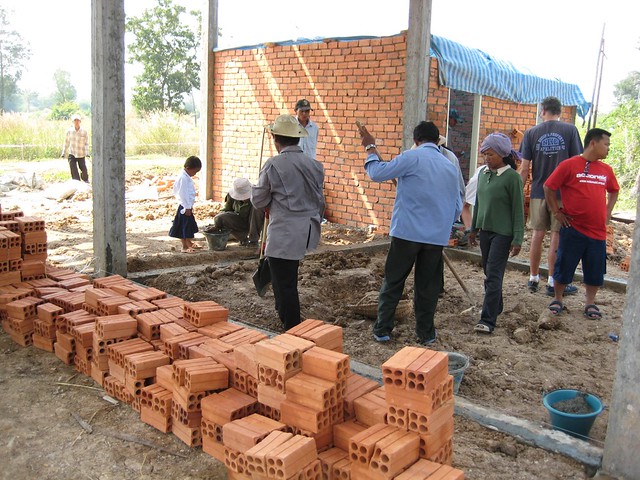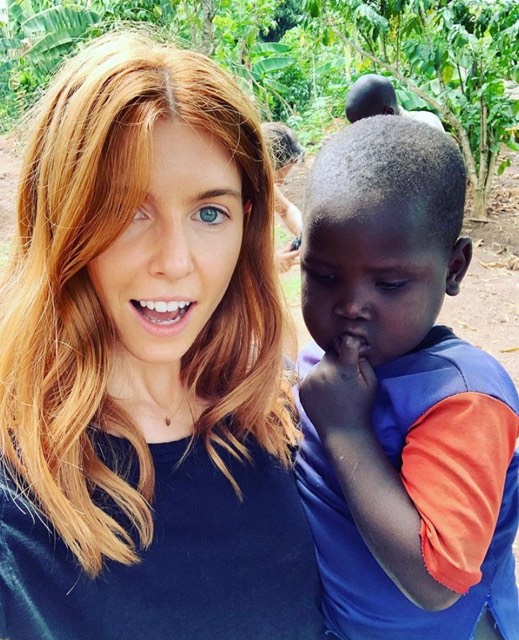By Elizabeth Adams
When I was 16, I travelled to Swaziland to build a kitchen. I worked a Saturday job at a Cattery. I sold crochet Christmas gifts to friends and family to raise the required £3,000 necessary to build the kitchen in Swaziland. Along with 20 other girls from my school, I ventured into the bush for three weeks ready to have an adventure; ready to do some good. Ready to build a kitchen.
Voluntourism – the practice of volunteering as part of a tourist experience – has become increasingly popular among students and young people with the industry now worth an estimated $2.6 billion. However, as I was once unaware, it appears many are similarly unprepared for how problematic and even sinister nature of the sector they are participating in is.
The trip I went on was a mixture of a community project, conservation project and safari. We spent 10 days working in a rural village, building the kitchen and accompanying dining room that would be used to provide meals for AIDS-orphaned children in the community. We worked alongside three Swazi builders and a teacher, splitting our time between building and very informal Maths lessons and games. For the rest of the trip, we completed a short conservation project helping collect tree samples for a study in a conservation reserve before (finally) we went on safari.
While the project seemed worthwhile – providing a facility that was needed in the community – it was also deeply flawed. We spent a lot of time with children in the village who were happy to see us and keen to learn. During this time, we had no contact with any adults – they often were suspicious and standoffish, watching us intently from a distance. I don’t blame them. We were strangers. We didn’t stay in the village, we arrived on a bus from our campsite every day. We had to eat our lunch away from the village so as not to flaunt our food. It also seemed clear to me that the builders could have completed the project in half the time had they not had to explain to a group of teenagers how to mix cement and where to carry the breeze blocks.
I was not really building a kitchen. We were not a part of the community. This much became clear: we were tourists.
When Guardian journalist Tina Rosenburg visited Hope of Life International (one of such flawed) organisations in Guatemala in 2018 she noted: “it seemed clear that not much money was being spent on its most vulnerable, disabled residents, while a lot of investment has gone towards making the volunteer experience as comfortable as possible”. This is the heart of the issue.
For all the good intentions of participants, the voluntourism industry is situated within a complex set of power relations. Programmes driven by the volunteer experience do little to include the community they are working in reinforce the perception that knowledge generated in the ‘developed’ world is superior to local knowledge from the ‘underdeveloped’ world. Voluntourism re-produces Orientalist power relations whereby peoples of Africa, Asia, and Latin America are positioned as ‘exotic’ and ‘other’ to the Western norm. Said describes the European perception of the Orient as “a place of romance, exotic beings, haunting memories and landscapes, remarkable experiences”.
In a similar manner, Rossi argues that “voluntourists come to view locals as ‘belonging to different material, social and epistemological worlds’”. By packaging volunteering as part of a tourist experience, “the indigenous community forms part of the photogenic landscape, which adds value to the ‘authenticity’ of the individual’s adventure” (McGloin and Georgeou) reminiscent of the visit to the Savage Reservation in Brave New World.
Five years after my trip to Swaziland I embarked on another volunteering experience, this time to Cambodia – the home of the Gap Yah traveller. This time the trip only cost £800, would last three months, was made up of a team of Cambodian and British volunteers, and involved living with a host family. Our project was working on making education in the community more inclusive by getting students involved in school decision-making and helping establish after-school activities run by students. While our integration in the village was far more successful than in Swaziland, the project still had its complications. It was evident at the end of our trip that very few, if any, of the activities we had tried to establish would continue to run after we had left. Was this because they weren’t what the community needed in the first place? Or was this because as a group of 18-25 year olds with no background in education we lacked the skills necessary?
I am unsure whether it will ever be possible to create an international youth volunteering programme that does not implicate itself in neo-colonial discourses. However, I am optimistic that with improved volunteer education and responsible organisations that include local voices in the project design phase, we can move to a more responsible form of volunteering that does more good than it does harm.

Image credit: Instagram – sjdooley, Thomaz Wanhoff

